
- Home
- India
- World
- Premium
- THE FEDERAL SPECIAL
- Analysis
- States
- Perspective
- Videos
- Sports
- Education
- Entertainment
- Elections
- Features
- Health
- Business
- Series
- In memoriam: Sheikh Mujibur Rahman
- Bishnoi's Men
- NEET TANGLE
- Economy Series
- Earth Day
- Kashmir’s Frozen Turbulence
- India@75
- The legend of Ramjanmabhoomi
- Liberalisation@30
- How to tame a dragon
- Celebrating biodiversity
- Farm Matters
- 50 days of solitude
- Bringing Migrants Home
- Budget 2020
- Jharkhand Votes
- The Federal Investigates
- The Federal Impact
- Vanishing Sand
- Gandhi @ 150
- Andhra Today
- Field report
- Operation Gulmarg
- Pandemic @1 Mn in India
- The Federal Year-End
- The Zero Year
- Science
- Brand studio
- Newsletter
- Elections 2024
- Events
- Home
- IndiaIndia
- World
- Analysis
- StatesStates
- PerspectivePerspective
- VideosVideos
- Sports
- Education
- Entertainment
- ElectionsElections
- Features
- Health
- BusinessBusiness
- Premium
- Loading...
Premium - Events
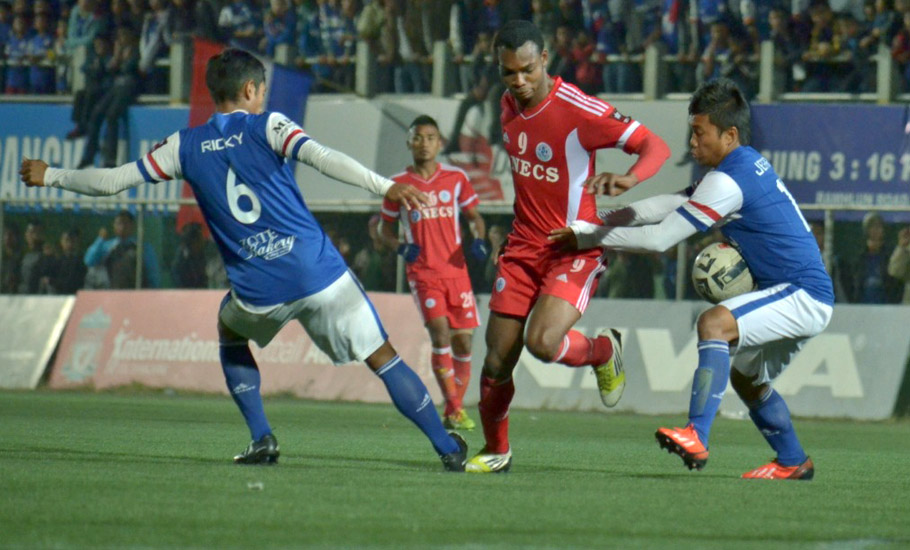
How Mizoram became a powerhouse of football in India

A common joke in Mizoram is that football is the only functional industry in the state. In the jest lies an incredible story of a tiny hill state becoming the country’s top churner of footballers. What is more spectacular is that it took only a few years for Mizoram to transform into the country’s footballing powerhouse from a minnow. It all began at the turn of this century when a...
A common joke in Mizoram is that football is the only functional industry in the state.
In the jest lies an incredible story of a tiny hill state becoming the country’s top churner of footballers.
What is more spectacular is that it took only a few years for Mizoram to transform into the country’s footballing powerhouse from a minnow.
It all began at the turn of this century when a diminutive but sturdy teenager from Mizoram joined the Tata Football Academy at Jamshedpur in Jharkhand to hone his skills.
Soon the ever-smiling teenager Malsawmtluanga Shylo, popularly known as Mama, caught the attention of scouts from Kolkata, and was signed for the city’s iconic club, the East Bengal in 2002.
By donning the East Bengal’s red and yellow jersey, Malsawmtluanga scripted history, becoming the first ever Mizo player to sign for a professional club. But more than his personal achievements, Malsawmtluanga is known for a bigger cause.
True to the meaning of his name which in his native Mizo language means the one whose path is blessed, he paved the way for a generation of Mizo footballers to showcase their skills beyond the hilltop pebbled grounds of Mizo villages.
The youth of the state now find in football an avenue for a gainful employment and want to be Mama’s followers. Malsawmtluanga inspired them to take up soccer as a profession.
“He (Malsawmtluanga) is the godfather of Mizoram football. He inspires us to consider football as an employment opportunity and not just a fun sport,” says C Lalhruaitluanga, a young football buff.
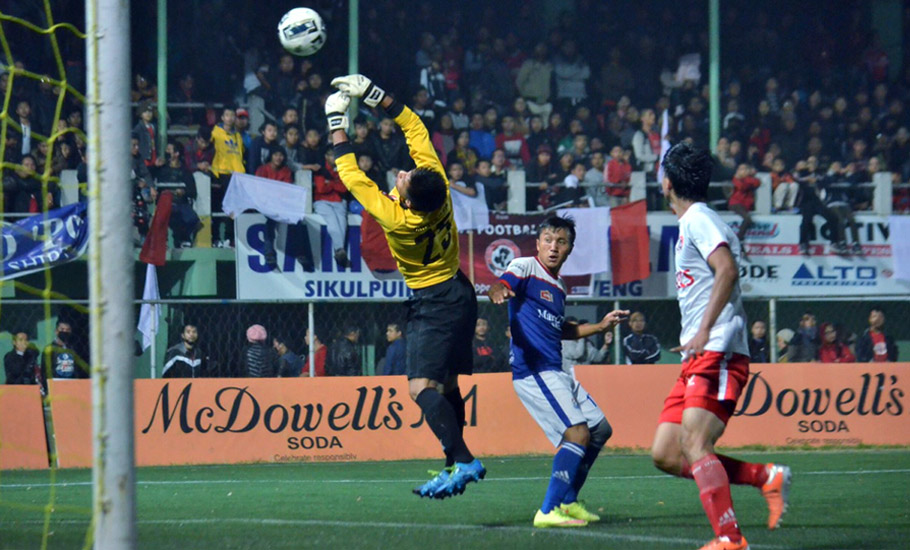
Stepping into the shoes of Malsawmtluanga, Jerry Zirsanga, Lalawmpuia, Robert Lalthlamuana, Jeje Lalpekhlua, Lalrindika Ralte, Lalrozamam Fanai, and many more burst into the Indian football arena, steadily supplying a pool of footballers to Indian professional soccer clubs as well as national team.
Mizoram’s domination in Indian football today can be gauged from some simple statistics. In the ongoing Indian Super League (ISL), there are 30 players from Mizoram playing for different clubs. Besides, there are over 400 Mizo boys playing for various clubs in I-League, defence services as well as various PSUs.
The combined worth of Mizo footballers in the ISL is about ₹24 crore, which is more than 5 per cent of the total value of all players in the tournament, pegged at ₹458 crore. This is big for India’s second least populous state after Sikkim. Mizoram has a population of just around 11.2 lakh.
Turning point
“Mizos have an inborn talent for football, but the platform for highlighting their talents was not available for a long time. Mama was among the lucky few who had the chance to train at the prestigious TFA and went on to sign for East Bengal. He has been an inspiration for Mizo boys to take up football as a profession,” says President of Mizoram Football Association (MFA) Lalnghinglova Hmar.
Soon after Mama, five more Mizo boys graduated from the TFA.
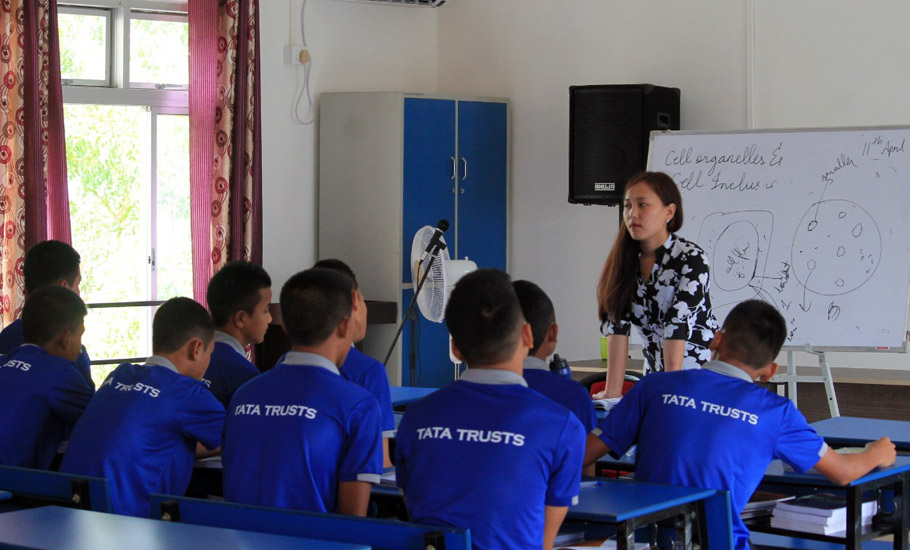
“Those were not necessarily the best players that Mizoram has had at that time. But they were the few fortunate ones who had the opportunity to train at the IFA and join the I-League to play as professionals,” Hmar said.
“Back home there were equally good players, if not better,” he added.
To groom and channelize the latent talents, the MFA in 2011 decided to create a professional football league structure in the state. Thus the Mizoram Premier League (MPL) was started in 2012, a year before the launch of the ISL.
The MPL introduced proper coaching facilities, improved football infrastructure and induced competition.
“I am lucky to get proper coaching at an early age at the football academy of the Mizoram Sport’s and Youth Services,” says Lallianzuala, a player from Chennaiyin FC.
“In the academy, I learned the importance of discipline, proper diet and regular exercise in the life of a professional player. I maintain a good diet and do regular exercise even on my holidays,” he says, “I hire a fitness coach to constantly improve my fitness and skills.”
The birth of MPL ensured that the football enthusiasm created by the initial burst of Mizo footballers into Indian professional football does not turn into a flash in the pan.
After all, in the past, Mizoram had seen a false dawn when K Kawllianthanga became the first Mizo footballer to represent India in 1977.

This time the MFA was determined to groom the state’s talent pool. The Rajiv Gandhi Stadium in Aizawl was given a facelift with artificial turf and modernised stands.
Grounds in other parts of the state too got artificial turf and overall makeover.
Today the state boasts of having the most number of full-size artificial-turf soccer grounds. It now has 10 soccer stadiums with artificial turf—two each in Aizawl, Champhai, Lunglei, Kolasib and Serchhip districts.
Saitual and Siaha districts too have a fully functional but yet to be inaugurated artificial football turf.
There is a plan to construct one at Mamit district and two grounds are under construction at Hnahthial and Khawzawl districts.
For the advancement of football in the state, the MFA is getting constant support from the government.
Mizoram has two residential football academies run by the state sports and youth services department for U-17 at Lunglei district and for U-14 at Kolasib district.
The Tata Trust’s Centre of Excellence was established at Aizawl in 2018. It is turning out to be one of the best residential academies in the country.
The academy provides three-year training under a foreigner coach. It recently became champion at the junior and sub-junior level national championships.
“The previous Congress government in the state was very keen in the promotion of sports. The current Mizo National Front government too is giving a lot of emphasis on sports,” Hmar said.
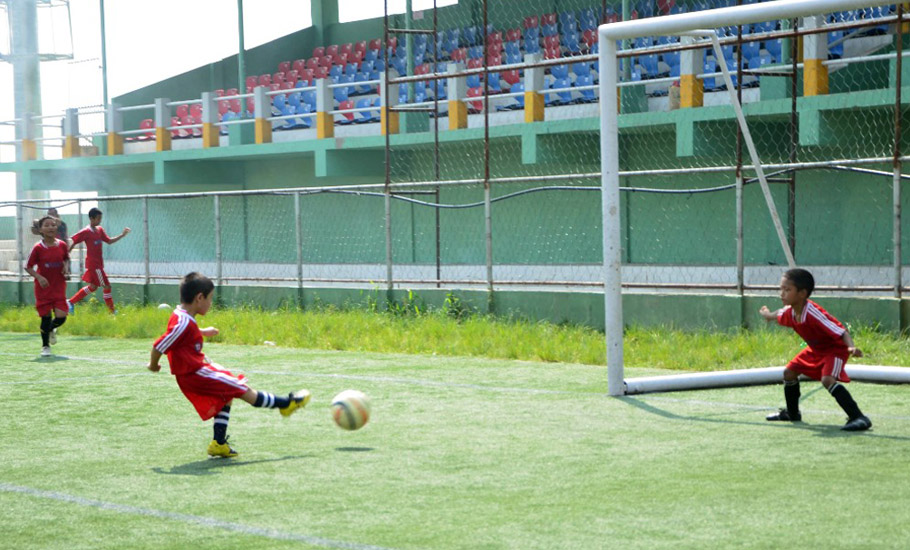
He also appreciated the role of the All India Football Federation (AIFF) in nurturing football talents of the state.
The MFA’s grassroots football talent hunt was started as a pilot project of the AIFF in 2012. The project meant for the children between the ages of 6 to 12 is still functional.
The results
That the MPL is turning into a major gamechanger became evident when within two years of its launch Mizoram created another history in 2014 by lifting the Santosh Trophy, the annual tournament in which all state teams and government institutions compete for the coveted title.
A year later, in 2015, the Aizawl FC, founded in 1984, qualified for the I-League. On April 30, 2017, the Aizawl club won the title becoming the first team from the Northeast to become a national-league champion.
Apart from bringing laurels to the state, football is also attracting tourists to Mizoram.
“A very few foreign tourists used to visit the state earlier. But after the Aizawl Football Club started hosting I-League matches in the state, many foreign tourists started visiting the state,” observes the president of the MFA.
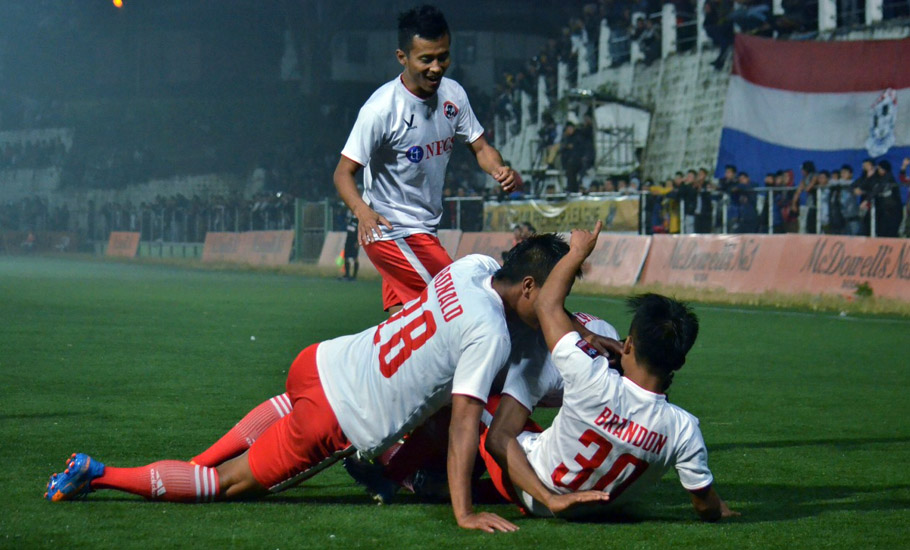
At least 400 foreign players, coaches and officials visited the state alone in the ten matches of the league the Aizawl FC hosted so far, Hmar said.
Football is truly proving to be a gamechanger for the hill state and the Mizo parents are perhaps the happiest of the lots.
“Parents in Mizoram have realised that there is a career in the game of football. They are giving their full support to their children to play the beautiful game,” says Jerry Mawihmingthanga, another ISL player from the state who plays for the Odisha Football Club.
“So long as the children have the support of their parents to pursue the game, Mizoram will continue to rule the Indian Football,” he added.
